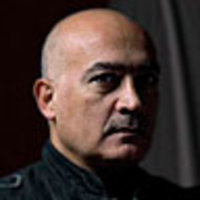In his first formal interview since taking office, President Barack Obama waged a charm offensive against the Arab and Muslim world yesterday, reminding viewers that members of his own family were Muslim—and calling for a new era in U.S. relations with the Muslim world.
Obama’s decision to give the interview to the Saudi-owned Al Arabiya Pan Arab network so early in his presidency was in itself a signal that his administration was ready to begin a new dialogue. But throughout the interview, Obama emphasized a sharp departure from the approach of George W. Bush, saying his administration would focus on “listening,” rather than “dictating.”
Watch President Obama’s Interview with Al Arabiya
He also confirmed that he was planning to address the Muslim world from a Muslim capital during his first 100 days in office. He would not offer details, but there are rumors that the speech will take place in Indonesia, where he spent part of his childhood.
Obama avoided granular specifics on policy, but reminded viewers that he would pursue a two-state solution to the Israeli-Palestinian conflict, and has already dispatched the newly appointed Middle East envoy George Mitchell to the region, to explore prospects for resuming peace negotiations. On his upcoming tour, Mitchell will be visiting Egypt, Israel, Ramallah (West Bank), in addition to Jordan, the UK and France.
Asked by Al Arabiya’s bureau chief Hisham Melhem about his plans for dealing with the Palestinian-Israeli conflict after the crisis in Gaza, the president said he believed “the moment is ripe for both sides to realize that the path that they are on is one that is not going to result in prosperity and security for their people.” And that instead, “It's time to return to the negotiating table.”
Obama said he was “absolutely confident” that the US could make “significant progress” working in tandem with the European Union, Russia and all Arab states in the region, toward an Israeli-Palestinian peaceful settlement.
Obama recognized Saudi King Abdullah’s initiative for a comprehensive Arab-Israeli peace, but he pointed out that it was “impossible for us to think only in terms of the Palestinian-Israeli conflict and not think in terms of what’s happening with Syria or Iran or Lebanon or Afghanistan and Pakistan. These things are interrelated.”
Obama echoed his own inaugural speech and Secretary of State Hillary Clinton’s Senate confirmation presentation, saying that “we are looking at the region as a whole, and communicating a message to the Arab world and the Muslim world, that we are ready to initiate a new partnership based on mutual respect and mutual interest.”
He also addressed terrorism directly, saying terrorist organizations were feeling nervous about his administration’s new approach to the Muslim world, because “their ideas are bankrupt. There are no actions that they’ve taken that say a child in the Muslim world is getting a better education because of them, or has better health care because of them.”
He continued: “In my inauguration speech, I spoke about: You will be judged on what you've built, not what you've destroyed. And what they've been doing is destroying things. And over time, I think the Muslim world has recognized that that path is leading no place, except more death and destruction.”
“Now, my job is to communicate the fact that the United States has a stake in the well-being of the Muslim world, that the language we use has to be a language of respect. I have Muslim members of my family. I have lived in Muslim countries.”
Asked whether his administration would be willing to live with a nuclear Iran, Obama said it was “very important for us to make sure that we are using all the tools for US power, including diplomacy, in our relationship with Iran.”
“I have Muslim members of my family. I have lived in Muslim countries.”
While noting that the Iranian people “are great people, and Persian civilization is a great civilization, Iran has acted in ways that are not conducive to peace and prosperity in the region: their threats against Israel; their pursuit of nuclear weapons which could potentially set off an arms race in the region that would make everybody less safe; their support of terrorist organizations in the past—none of these things have been helpful.”
He added that it was important to be willing to talk to Iran, “to express very clearly where our differences are, but where there are potential avenues for progress. And as I said during my inauguration speech, if countries like Iran are willing to unclench their fist, they will find an extended hand from us.”
After the interview, Melhem described his experience interviewing Obama to The Daily Beast, saying he felt he was “in the presence of a man with a keen intellect and supple intelligence—a man with a great ability to connect what seems to be disconnected.”
He said the interview left him with the impression that “there will be a shift in approach to the Middle East—a shift in paradigm… he’s basically telling everybody there is a new wind blowing out of the White House, a new discourse toward the Muslim world, a more activist approach…based not only on words, but also on deeds.”
When Obama addresses the Muslim world next from a Muslim capital, there is no doubt that the Muslim world will be listening.
RELATED: Obama's Already Talking to Iran by Geraldine Brooks
Salameh Nematt is the international editor of The Daily Beast. He is the former Washington bureau chief for the international Arab daily Al Hayat, where he reported on US foreign policy, the war in Iraq, and the US drive for democratization in the broader Middle East. He has also written extensively on regional and global energy issues and their political implications.






